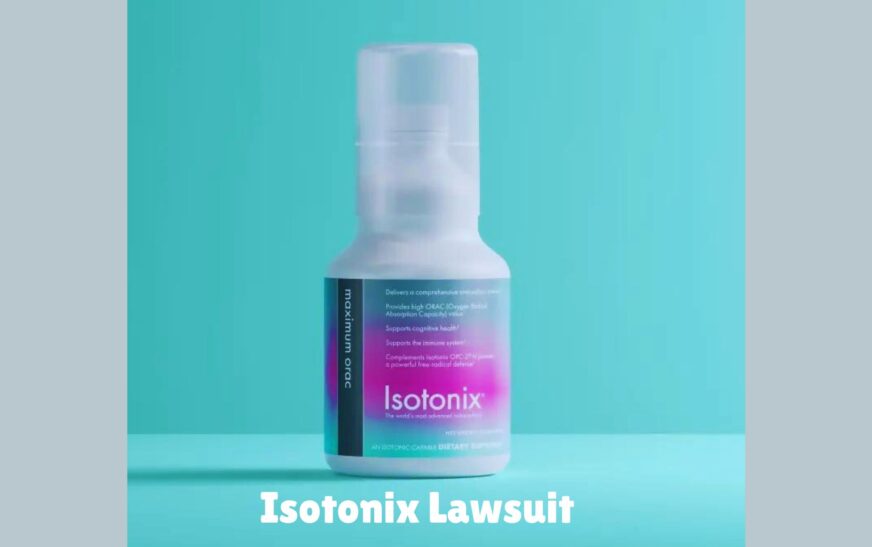When a popular health supplement brand like Isotonix finds itself in the middle of a lawsuit, it can raise a lot of questions and concerns. Whether you’re a loyal customer, a curious observer, or just trying to get the facts, understanding the ins and outs of the Isotonix lawsuit is crucial. In this blog post, we’ll dive deep into the details of the Isotonix lawsuit, exploring its origins, the main issues at stake, and what it means for consumers and the company itself.
What Is the Isotonix Lawsuit About?
The Isotonix lawsuit centers on allegations that the company, known for its line of dietary supplements, misled consumers about the effectiveness and safety of its products. Here’s a breakdown of the main points involved:
- Allegations: The lawsuit claims that Isotonix engaged in false advertising, making exaggerated claims about the health benefits of its supplements without providing adequate scientific evidence.
- Defendants: The legal action is directed at Isotonix itself, along with its parent company and potentially other affiliated entities involved in marketing and selling the products.
- Plaintiffs: The plaintiffs include individual consumers and possibly groups or organizations that represent consumer rights.
The Background of Isotonix
Before diving deeper into the lawsuit, let’s take a moment to understand what Isotonix is all about. Founded in the early 2000s, Isotonix specializes in nutritional supplements. Their products are marketed as being more effective due to their “Isotonic” delivery system, which the company claims enhances the absorption of nutrients.
Key Points of the Lawsuit
Misleading Claims
One of the central issues in the lawsuit is whether Isotonix misrepresented the benefits of its supplements. The plaintiffs argue that the company made bold claims about their product’s ability to improve health, boost energy, and provide other benefits, without solid scientific backing.
- Example Claims: Some of the product advertisements suggested that Isotonix supplements could prevent serious health conditions or significantly improve overall wellness.
- Scientific Evidence: Critics argue that the evidence supporting these claims was either insufficient or non-existent.
Regulatory Compliance
Another point of contention is whether Isotonix followed the proper regulations for dietary supplements. Dietary supplements are regulated differently from pharmaceuticals, but they still must comply with certain standards.
- Labeling: The lawsuit questions whether Isotonix adhered to labeling laws, which require accurate representation of the product’s contents and effects.
- Testing: There’s also debate over whether the supplements were tested by industry standards before being marketed.
Consumer Impact
The lawsuit also highlights the impact on consumers. Plaintiffs argue that they spent significant amounts of money on Isotonix products based on misleading information.
- Financial Loss: Some consumers allege that they would not have purchased the products if they had known the true extent of their benefits.
- Health Concerns: There are claims that the products did not deliver the promised health benefits, leading to disappointment and mistrust.
What’s Next for Isotonix?
The lawsuit is ongoing, and its outcome will depend on several factors, including the evidence presented and the legal arguments made by both sides. Here’s what could potentially happen next:
- Settlement: The parties might reach a settlement agreement before the case goes to trial. This could involve financial compensation for affected consumers and changes to how Isotonix markets its products.
- Trial: If the case proceeds to trial, the court will review the evidence and decide. This process could take several months or even years.
- Appeal: Depending on the trial’s outcome, there might be appeals. Either side could challenge the decision, which could further delay resolution.
How Does This Affect Consumers?
For consumers, this lawsuit could lead to several changes:
- Refunds: If the court finds in favor of the plaintiffs, consumers may receive refunds or other compensation.
- Product Reformulation: Isotonix might be required to reformulate its products or alter its marketing practices to comply with legal standards.
- Increased Transparency: The company could face increased scrutiny and be required to provide more transparency about its products’ claims and ingredients.
What Can You Do as a Consumer?
If you’re concerned about the Isotonix lawsuit, here are a few steps you can take:
- Stay Informed: Keep up with the latest updates on the lawsuit to understand how it may impact you.
- Review Your Purchases: If you’ve bought Isotonix products, review your purchase history and consider if you might be eligible for any compensation.
- Contact Isotonix: Reach out to the company for information on how they’re addressing the lawsuit and any changes they might be making.
Conclusion
The Isotonix lawsuit is a significant case that could impact the company’s reputation and its customers. By understanding the key issues and staying informed about the proceedings, consumers can better navigate their choices and expectations regarding health supplements.







